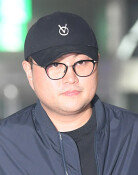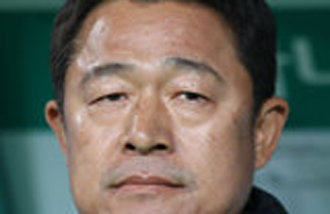[Editorial] Roh Attacks Media Again
Yesterday, President Roh Moo-hyun ordered an investigation of the press rooms of each ministry, stating, The media is a group that strongly resists the abolishment of special privileges, collusion, backdoor dealings, and violation of rules. He implied that a number of reporters in the press room are collaborating to create reporting material. The president also ordered the Ministry of Foreign Affairs and Trade to investigate foreign press rooms. It is truly news for the foreign media.
Collaboration of articles does not and cannot exist. It was a statement against the dignity of the reporters, who monitor the government in lieu of the people, and assess governmental policies objectively. It was a vehement speech reflecting the authoritarian idea that the government is the absolute good, and criticism cannot be allowed. Reporters for the Ministry of Health and Welfare requested a retraction and apologies for the presidents statement.
President Rohs attacks and blame on the media have intensified toward the end of his term. Since the beginning, the president did not hide his antipathy, saying, Does contact with reporters mean that public servants are buying meals and alcohol for the reporters? And early this year he labeled the media as junk food. Lee Byung-wan, the presidential chief of staff, said the day before, said, It is true that certain media have adopted the attitude to doubt the verity of the presidents proposal for constitutional change, and blamed the media for the peoples resistance to constitutional change.
But according to several polls held after the presidential proposal for constitutional change, 70 percent stated that Constitutional change at the end of the presidential term is not appropriate. But his unbending purpose for constitutional change by deflecting media criticism is doubtful. President Roh received the investigation results of the press, and said, I will carry out all necessary reforms. Does he mean to control the media through his presidential powers?
The media exists for the citizens right to know. The Constitutional Court clearly states that The freedom of the press is one of the most basic rights for citizens in a democratic society. Democracy is not displayed merely by dominating the elections. The difference between a democratic country and a totalitarian one is whether the people and the media can criticize governmental policies without fear. The president had said, I have given up being evaluated as the good president by people but now he seems to have launched an all-out war with the media.
The current government has dominated the broadcast with a taste to its liking, and also established an unconstitutional newspaper publisher regulation to pressure dissenting newspapers. One should question whether the president is attempting to push through with his plans for constitutional change by putting pressure on the media through press room investigations, in addition to the newspaper publisher regulations, of which its key points were found to be unconstitutional.
Headline News
- Iran blames US sanctions for helicopter crash that killed president
- Pres. Yoon vetoes investigation into death of marine
- “Croatia Holds a Business Forum in Seoul…Looking forward to the development of trade relations”
- Samsung names new chief for semiconductor business
- Seoul City plans to expand welfare benefits






